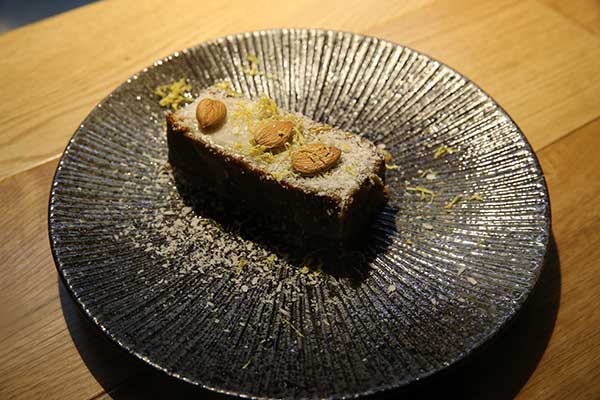 |
|
Desserts are made with ingredients like almond flour, honey, dates and coconut milk.[Photo by Feng Yongbin/China Daily] |
The first time, we gravitate to Yaksa Thai. The staff beckons us as eagerly as hawkers in a street market. The menu has big pictures, the food is familiar, the staff speaks English and there is lots of comfortable seating around. We make a quick trip to the bar upstairs to grab some beers to go with our pad Thai and curries, and we're all set.
Other venues are a little less accessible, especially for foreigners who don't speak Chinese. The language challenge starts at the cashier-all vendors here accept payment through a common system. Customers can buy a card with credit good at any of the 20-odd restaurants-the minimum is 100 yuan on the card-or use WeChat or Alipay to access the central till.
That control has its advantages. Besides running the payment system, the hall management approves menus and tacitly monitors quality.
"Legally and permit-wise, we're all one restaurant," says Hsu Li. "So if one of our vendors screws up on cleanliness or something, everybody can be shut down." Hsu and his partners also look for vendors "who have a go-to specialty that they do very well," he says, "and we don't let them copy each other. So if you make lasagna and you're not selling well, and the guy across the aisle is selling pita sandwiches like gangbusters-a hypothetical example, you can't start selling pita pockets to cash in on your neighbor's traffic. In a real example, that's why Mr Shi-a dumpling sensation at his original hutong location-is selling noodles here; a dumpling maker had set up shop in Yu first.
On another visit, we're tempted by the aroma of Mengba Warriors' grilled lamb-and the macho-looking cow-horned vessels on the counter that turn out to contain horse wine.